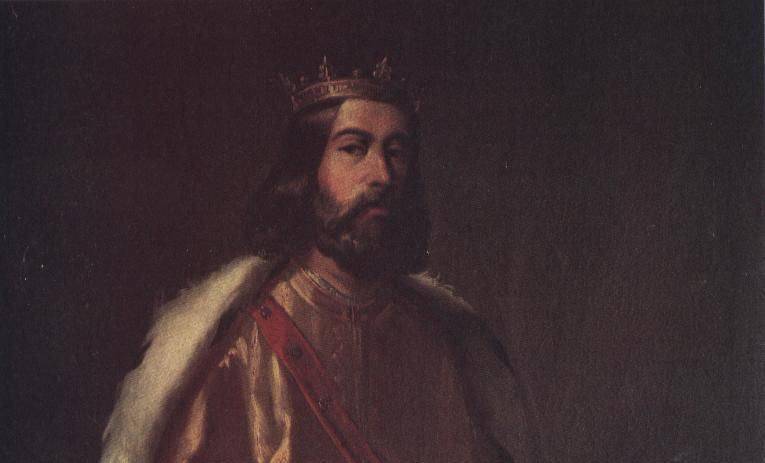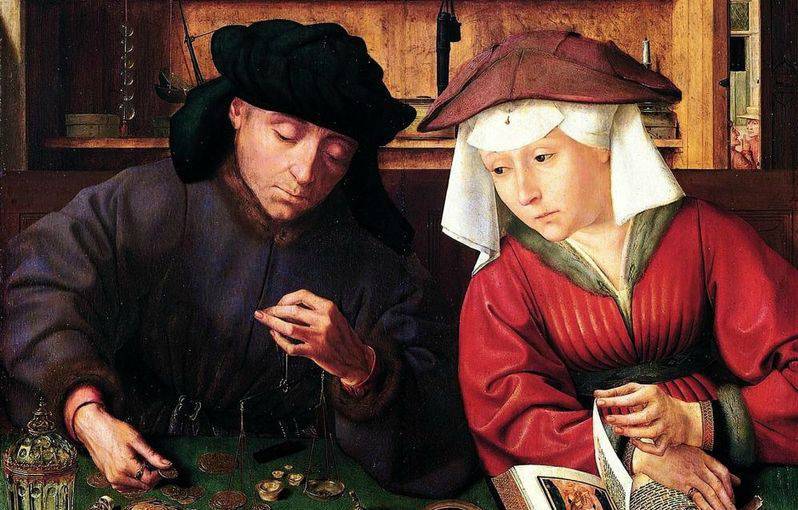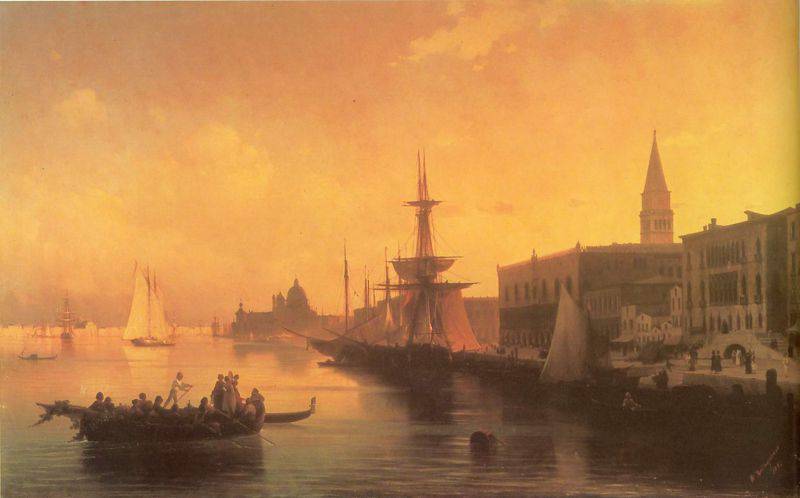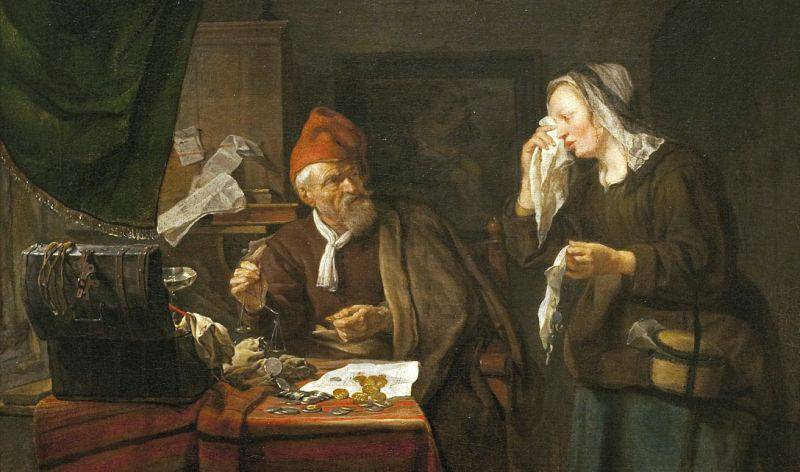WHEN THE GROWNER WENT ...
Both in the field of theology (theology) and in the sphere of practical church policy, Catholicism, after separation from Orthodoxy, took the path of small (at first glance not very visible) reforms, concessions, relief measures, which prepared the conditions for the Reformation.
What caused these concessions and relief?
First, the pressure of real life: capitalism appeared and strengthened without fail in Europe (for example, the emergence of capitalist policy cities in southern Italy).
Secondly, the fact that the Catholic Church, especially the large monasteries, was forced to do housekeeping, and too stringent restrictions and prohibitions prevented it from carrying out economic activities. First of all, prohibitions or restrictions on private property, income from the lease of land and other property, the use of hired labor, the issuance and receipt of loans.
Thirdly, the aspiration of the Roman throne to strengthen its political influence on kings and princes. For this, money was needed, and considerable money. The maintenance of the usual monastic economy does not earn such money. Big money all the more demanded the removal of church restrictions (or closing the eyes to the violation of these restrictions). The church could receive (and received) big money using mainly two means: usury and the trade in indulgences.
Most clearly, the discrepancy between what the western church preached and what happened in the real life of Christian Europe can be seen in the example of usury. The official position of the church regarding usury is the most intransigent, tough and even cruel somewhere. Despite the discrepancies between the eastern and western churches in the dogmatic sphere, they did not observe any fundamental differences on the question of usury. Eastern and Western churches were guided by the decisions of the Ecumenical Councils. The first Council of Nicaea, 325, forbade clergy to engage in usury. The ban was later extended to laymen.
IN THE WESTERN CHURCH, GROWTH EQUITY DEVELOPED TO THE SIN OF SODOMY
In the western church, the question of usury, perhaps, was paid even more attention than in the east. There usury was equated with the sin of sodomy. In the West, during the early Middle Ages, the proverb “Money does not generate money” appeared. The Catholic scholastics explained: the receipt of interest, which is calculated based on the term of the loan, is in fact “time trade”, and time belongs only to God, therefore usury is an encroachment on God. The moneylender sins continuously, because even during his sleep an increment of interest occurs. In 1139, the Second Lateran Council decided: “Who takes interest, should be excommunicated and taken back only after the strictest penance and with the greatest care. Perpetrators of interest cannot be buried according to Christian custom. ” In 1179, Pope Alexander III forbids a percentage on pain of being deprived of the sacrament. In 1274, Pope Gregory X imposes a more severe punishment — expulsion from the state. In 1311, Pope Clement V imposes a penalty of complete excommunication.
However, in parallel there were other processes. The crusades, which began in 1095, gave a powerful impetus to the enrichment of the church elite at the expense of the booty obtained by the crusaders. In this sense, the Fourth Crusade is particularly significant, the apogee of which was the plundering of the capital of Byzantium, Constantinople in 1204. According to various estimates, the cost of mining ranged from 1 to 2 million silver marks, which exceeded the then annual income of all European countries.
The sharp increase in the income of the church led to the fact that she had the opportunity to give money in growth. It should also be borne in mind that such income accustomed the priesthood to high standards of consumption (in other words, to luxurious life), therefore, in cases where income fell, it sought to compensate for these falls by borrowing.

The financial and usury activity of the Order of the Templars, or the Templars, looked particularly sharp contrast against the background of the church ban on usury. It is noteworthy that initially this order was called "Beggars Knights" (1119). After the papal blessing and tax exemption in 1128, the Knights of the Order became known as Templar. Historians claim that the Knights of the Order in poverty did not last long. One of the sources of their wealth was mining, obtained as a result of the looting of Constantinople in 1204 (by the way, the Templars managed to plunder the city again in 1306). Another source of income of the order was voluntary donations. For example, Alphonse I the Wrangler, the warlike king of Navarre and Aragon, bequeathed to the templar some of his estates. Finally, when leaving for the crusades, the knights-feudal lords handed over their property under the supervision (as they would say now to the trust administration) of the Templar brothers. But only one out of ten took the property back: some knights died, others remained to live in the Holy Land, others joined the order (their property became common under the statute). The Order had an extensive network of strongholds (more than 9 thous. Comordes) throughout Europe. There were also several headquarters - a tamplion. The two main headquarters were in London and Paris.
The Templars were engaged in a variety of financial transactions: settlements, currency exchange, transfer of funds, asset custody, deposit operations, etc. However, credit operations were in the first place. Credits were given both to agricultural producers, and (first of all) to princes and even to monarchs. The Templars were more competitive than Jewish usurers. They gave loans to "solid borrowers" under 10% per annum. Jewish money lenders served mainly small customers, and the price of their loans was about 40%.
As you know, the Order of the Templars was defeated at the beginning of the XIV century by the French king Philip IV Handsome, Pope Clement V helped him with it. More than 1 million full-bodied livres were seized from the Templars (for comparison, the construction of a medium-sized knight’s castle then cost 1 – 2 thousand livres). And this is not counting the fact that a significant part of the means of the order was evacuated outside France before its defeat.
TEMPLARS GAVE LOANS TO "SOLID" CUSTOMERS UNDER 10% YEAR
Usury in medieval Europe was not only practiced by the Templars, but also by many other persons who formally belonged to the Catholic Church. This is primarily about the usurers, whose offices were located in such Italian cities as Milan, Venice and Genoa. Some historians believe that the Italian bankers of the Middle Ages are the descendants of those usurers who lived in these places in the era of the Roman Empire and belonged to the Latins. In ancient Rome, not Roman citizens were engaged in usury, but Latins, who had truncated rights and obligations. In particular, they were not covered by the Roman laws on punishments for usury.
Already in the XIII century, banks were in any large Italian city. The entrepreneurs needed to earn money on international trade. Speaking of medieval Venice, historian Andrei Vajra emphasizes that its merchants were able to accumulate the initial capital due to their unique position between Byzantium and the Western Roman Empire: “Politically tacking between the Byzantine and Western Roman empires, it [Venice. “V. K.] seized control of the main commodity and cash flows of that time.” Many merchants became bankers, leaving, however, the former trading business.
Very businesslike, “creative” relations have developed between the Italian bankers and the Holy See. Bankers actively credited the pope and his entourage, and the Roman throne “covered” these bankers. First of all, he turned a blind eye to the violation of the ban on usury. Over time, bankers began to credit the priesthood throughout Europe, and the Roman throne used an “administrative resource”, forcing their subordinates to fully fulfill their obligations to bankers. In addition, he put pressure on the feudal debtors, threatening them with excommunication from the church in the event of non-fulfillment of obligations to creditors. Among the bankers who credited the throne, the Florentine houses of Mozzi, Bardi and Peruzzi were particularly prominent. However, in 1345, they went bankrupt, with the consequences of bankruptcy spread far beyond Italy. In fact, it was the first global banking and financial crisis. It is noteworthy that he broke out in Catholic Europe long before the Reformation and the emergence of Protestantism with its "spirit of capitalism."
AFTER FAILURE OF THE ENGLISH KING IN PAYMENTS TO FLORENTIAN GROWERS EUROPE AFFECTED THE FINANCIAL CRISIS
The English king Edward III got into big debts to the Florentine banking houses due to the fact that he had to pay the expenses for the war with Scotland (in fact, the Hundred Years War began with this). Edward III lost the war and was forced to pay indemnities. Payments were made again by loans received from Italian bankers. The crisis arose as a result of the fact that in 1340, the king refused to return his debt to bankers. At first, the banking houses of Bardi and Peruzzi burst, and then 30 related companies went bankrupt. The crisis has spread throughout Europe. It was not only a banking crisis. "Defaults" declared the Papal Curia, the Kingdom of Neapolitan, Cyprus, a number of other states and kingdoms. After this crisis, well-known banking houses Cosimo Medici (Florence) and Francesco Datini (Prato) took the place of the ruined creditors of the Holy See.
Speaking of banking in medieval Europe, we must not forget that, along with active (credit) operations, banks have become increasingly powerful in deploying passive operations - raising funds to deposit accounts. The owners of such accounts were paid interest. This further corrupted the Christians, forming in them the consciousness of the bourgeois-ranty, who, like a moneylender, did not want to work, but live on interest.

In modern terms, Italian city-states were a kind of offshore in medieval Catholic Europe. And not only in the financial and economic sense (special tax regime, etc.), but also in the religious and spiritual. These were the "islands" where the norms of economic ethics of Catholicism did not act or acted in a very truncated form. In fact, these were already “islands of capitalism”, which in various ways infected the entire Catholic Europe with the “spirit of capitalism”.
The famous German historian, the founder of geopolitics, Karl Schmitt, wrote about the political, economic, and spiritual and religious uniqueness of Venice (against the background of medieval Europe) as follows:
“For almost half a millennium, the Republic of Venice was considered a symbol of maritime domination and wealth, which grew in maritime trade. She achieved brilliant results in the field of big politics, she was called “the most outlandish creature in stories economy of all time. "
Everything that fanned fanatical Anglomans to admire England in the 18th – 20th centuries, had already been the cause of admiration for Venice: great wealth; advantage in diplomatic art; tolerance of religious and philosophical views; refuge of freedom-loving ideas and political emigration ".
The Italian city-states with their “spirit of capitalism” gave impetus to the well-known Renaissance, which manifested itself both in art and in philosophy. As they say in all textbooks and dictionaries, Renaissance is a system of secular humanistic world views based on a return to the culture and philosophy of the ancient world. From this we can conclude that this is the revival of ancient paganism and a departure from Christianity. The Renaissance made a significant contribution to the preparation of conditions for the Reformation. As Oswald Spengler accurately noted, "Luther can only be explained by the Renaissance."
AT THE OFFICIAL BENCH FOR A PERCENT, THE LAST TURNS INTO THE MAIN ROD OF THE WHOLE FINANCIAL SYSTEM OF CATHOLICISM
It is difficult to overestimate the corrupting influence of usury on the Christian consciousness of a medieval European. This is what Olga Chetverikova, a researcher of Catholicism, writes on this subject:
“Thus, having firmly connected itself with usury, the Roman curia became essentially the personification and hostage of commercial transactions, in the interests of which both the law and the law were violated. With the official ban on interest, the latter became the main pivot of the entire financial system of Catholicism, and this dual approach had a fatal effect not only on the development of the economy, but also, most importantly, on the consciousness of a Western person. In the conditions of complete discrepancy between teaching and practice, there was a split in the public consciousness, in which adherence to moral standards assumed a purely formal character. ”
However, usury was not the only sinful deed, which in the Middle Ages Catholics were semi-legally (or half-open). Both ordinary and belonging to the church hierarchy. The latter actively practiced simony — trade in church offices. One of the bishops of Fleur described the enrichment mechanism using simony as follows: “The archbishop ordered me to transfer gold sousas to 100 to get a bishop's office; if I had not transferred to him, I would not have become a bishop ... I gave gold, received a bishopric, and at the same time, if I did not die, I would soon compensate my money. I ordain priests, consecrate deacons, and receive gold, which is gone from there ... In the Church, which is the property of God alone, there is almost nothing that could not be given for money: the bishopric, the priesthood, the diaconate, the lower ranks ... of baptism. ” The spirit of love of money, mercy and covetousness penetrated and firmly established within the church fence in Western Europe. It is obvious that cases like the one that Bishop Fleur described were not isolated, but massive. They contributed to the spread of this spirit throughout Western European society. At the same time, they undermined the credibility of the Catholic Church, provoked discontent among the congregation and part of the ordinary priesthood. In Catholicism, a crisis was ripening, which ended in the Reformation.
- Valentin Katasonov
- http://xn--h1aagokeh.xn--p1ai/special_posts/%D0%BA%D0%BE%D0%B3%D0%B4%D0%B0-%D0%BF%D1%80%D0%B8%D1%88%D1%91%D0%BB-%D1%80%D0%BE%D1%81%D1%82%D0%BE%D0%B2%D1%89%D0%B8%D0%BA/


Information